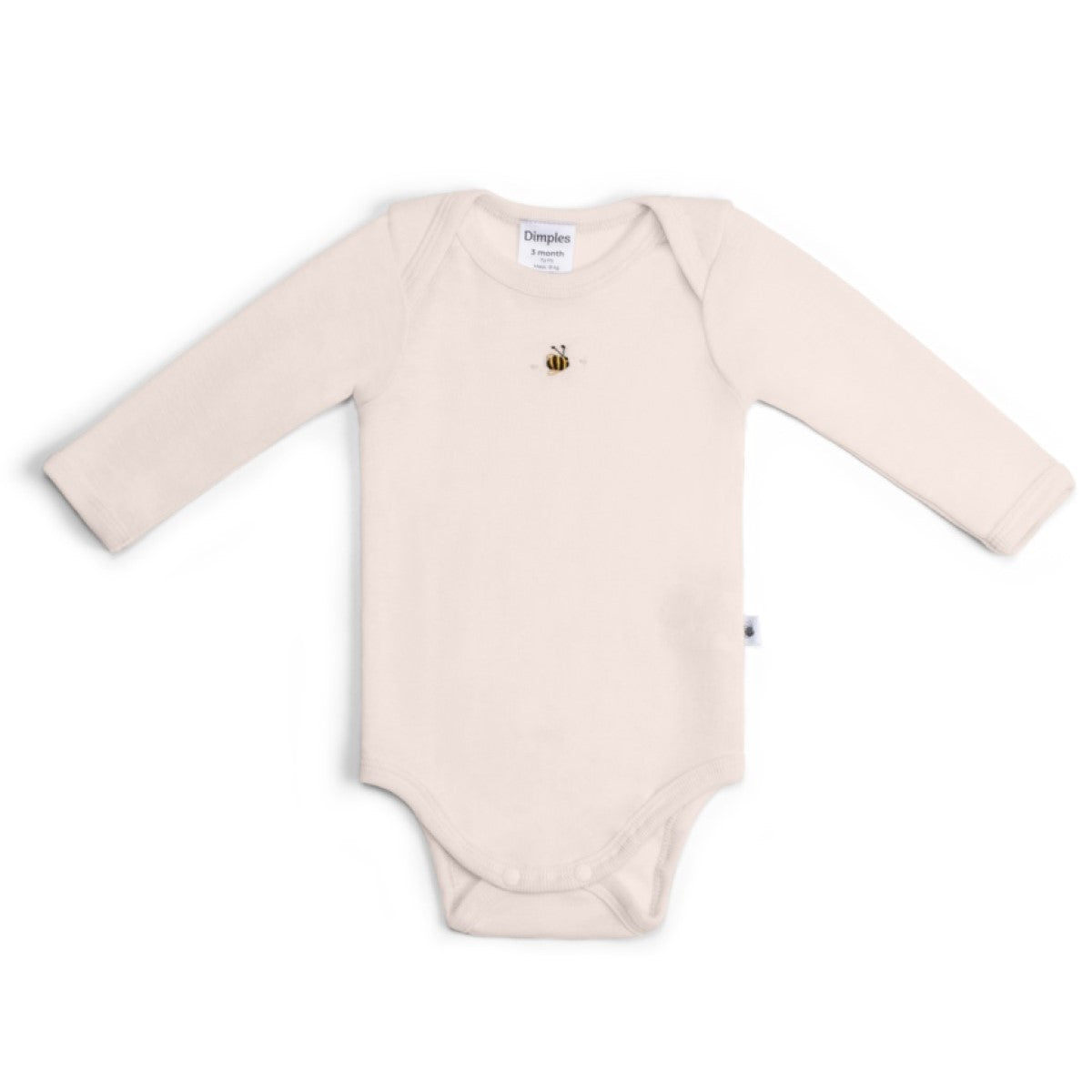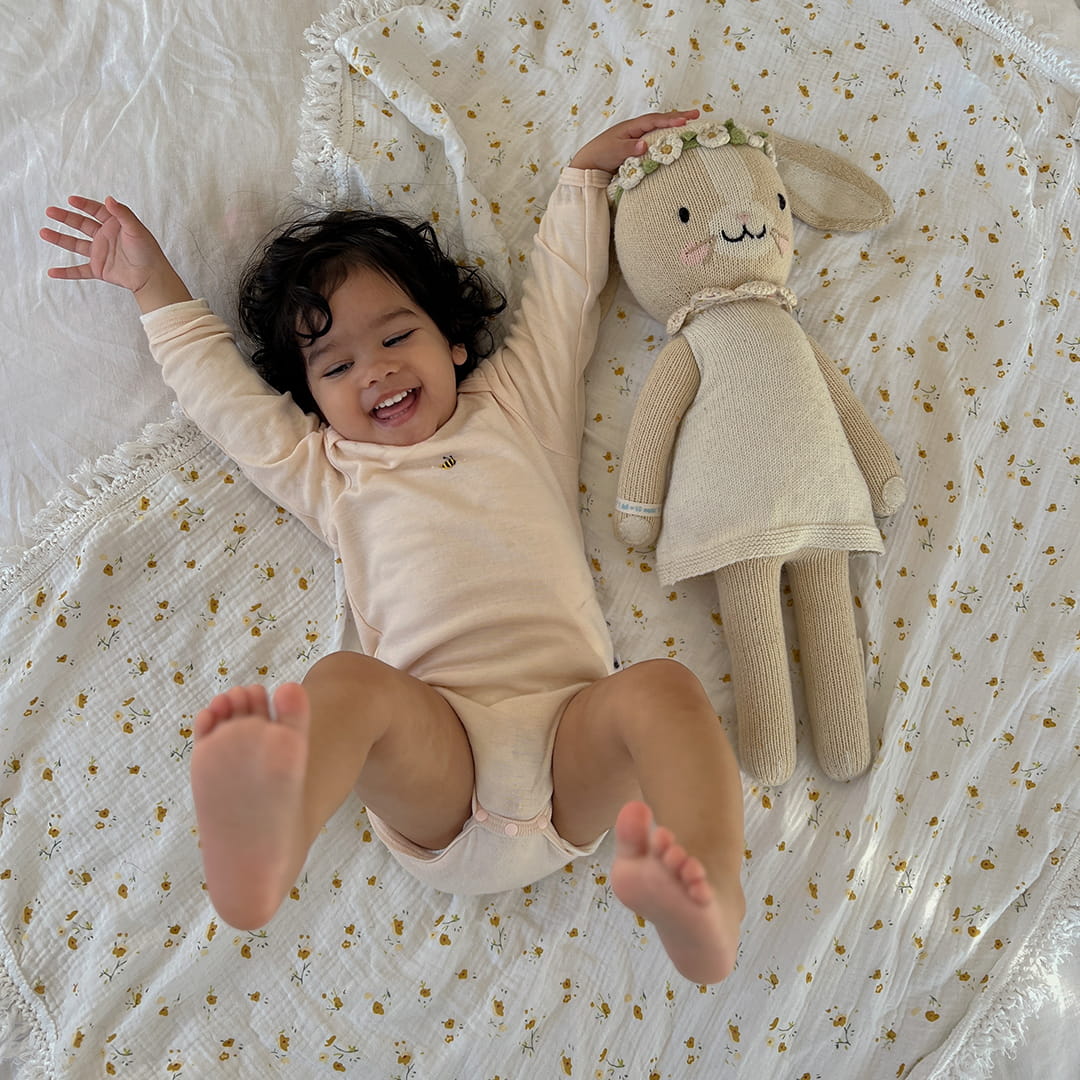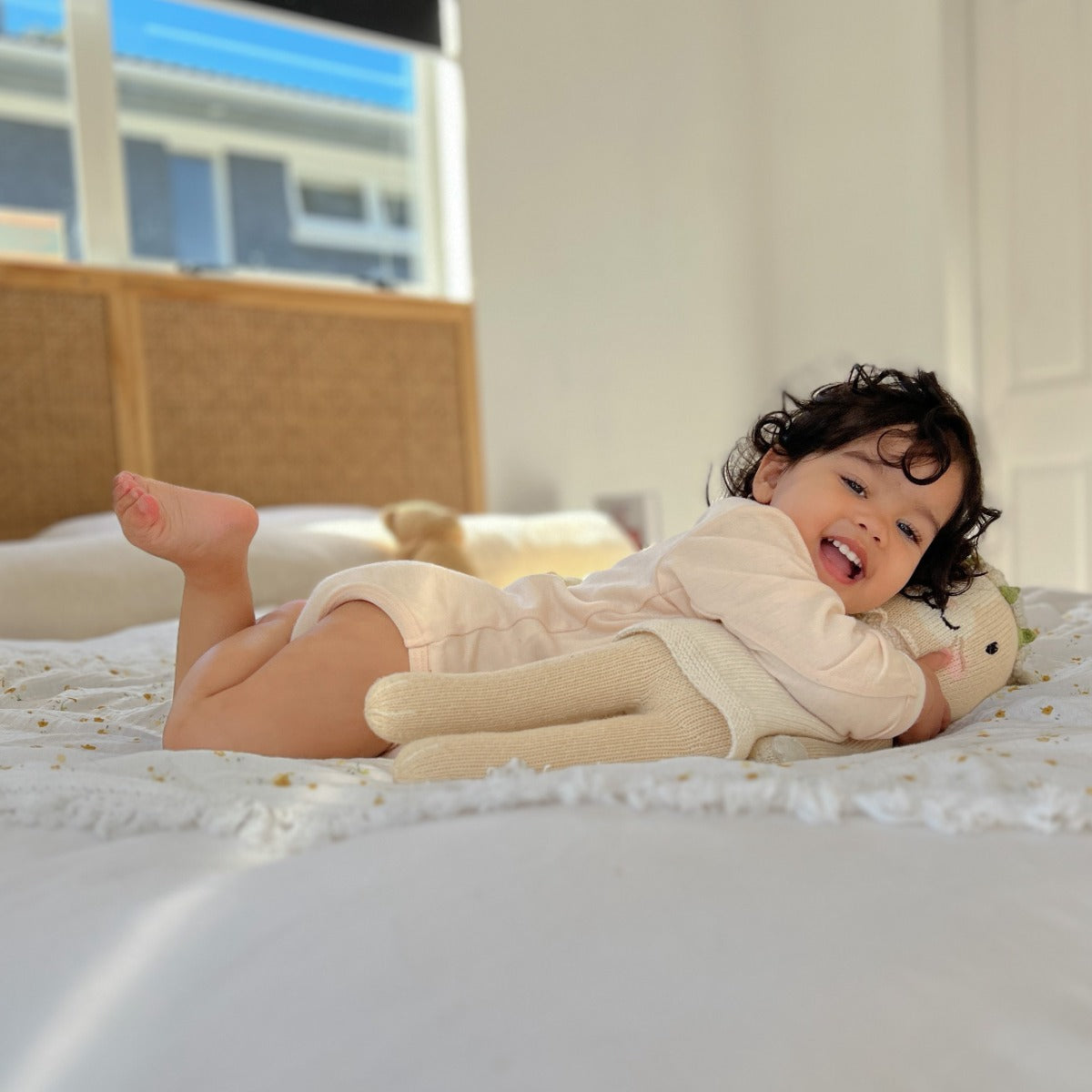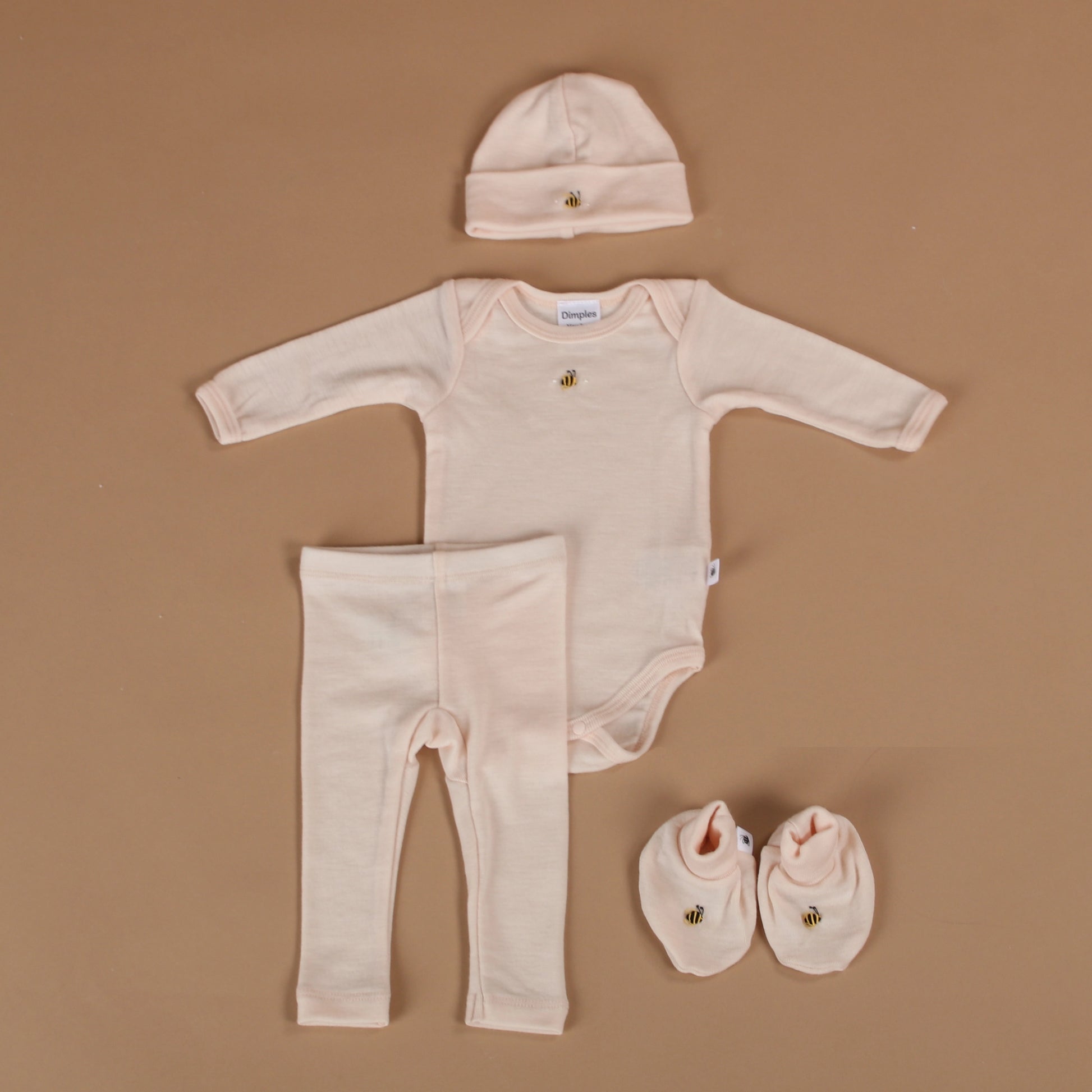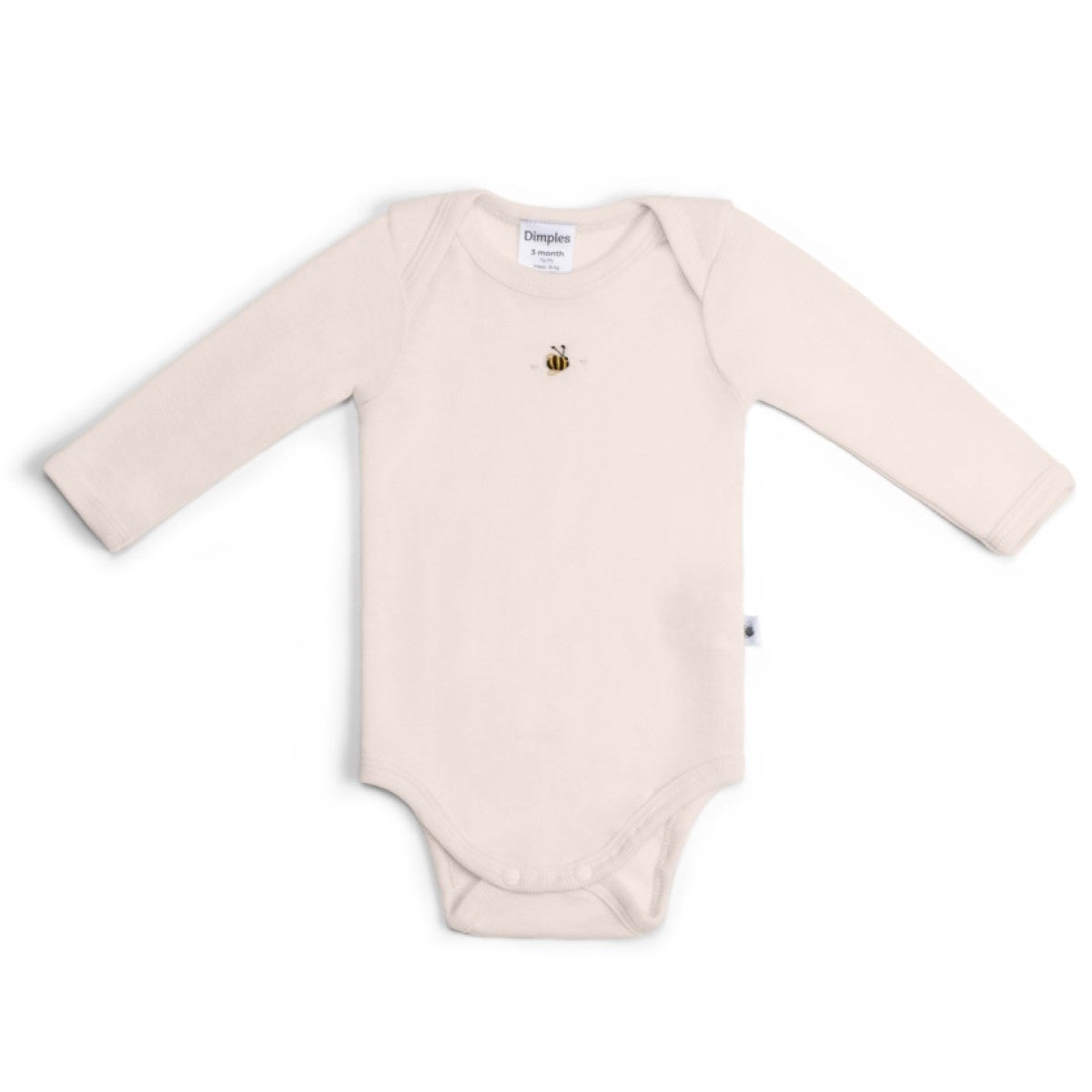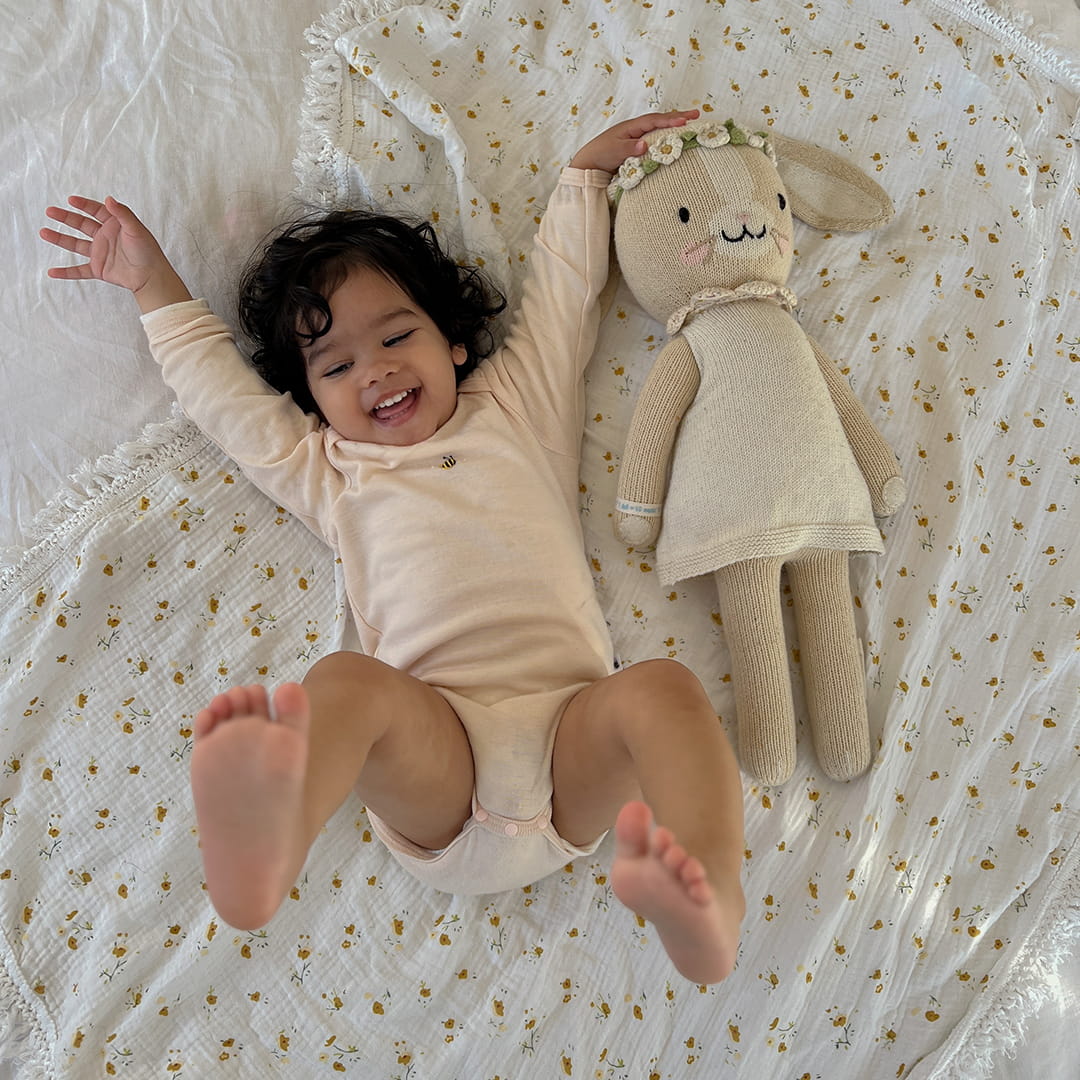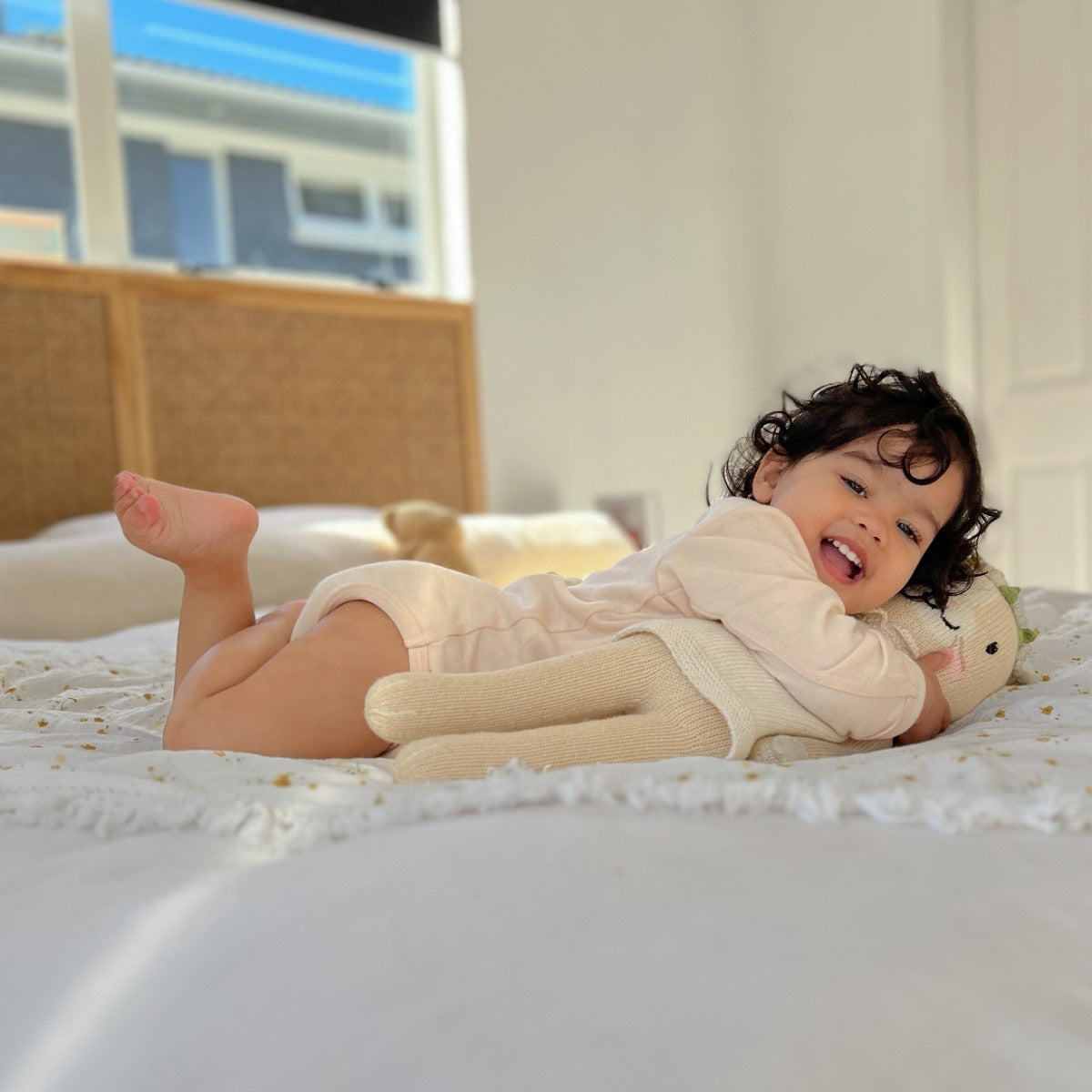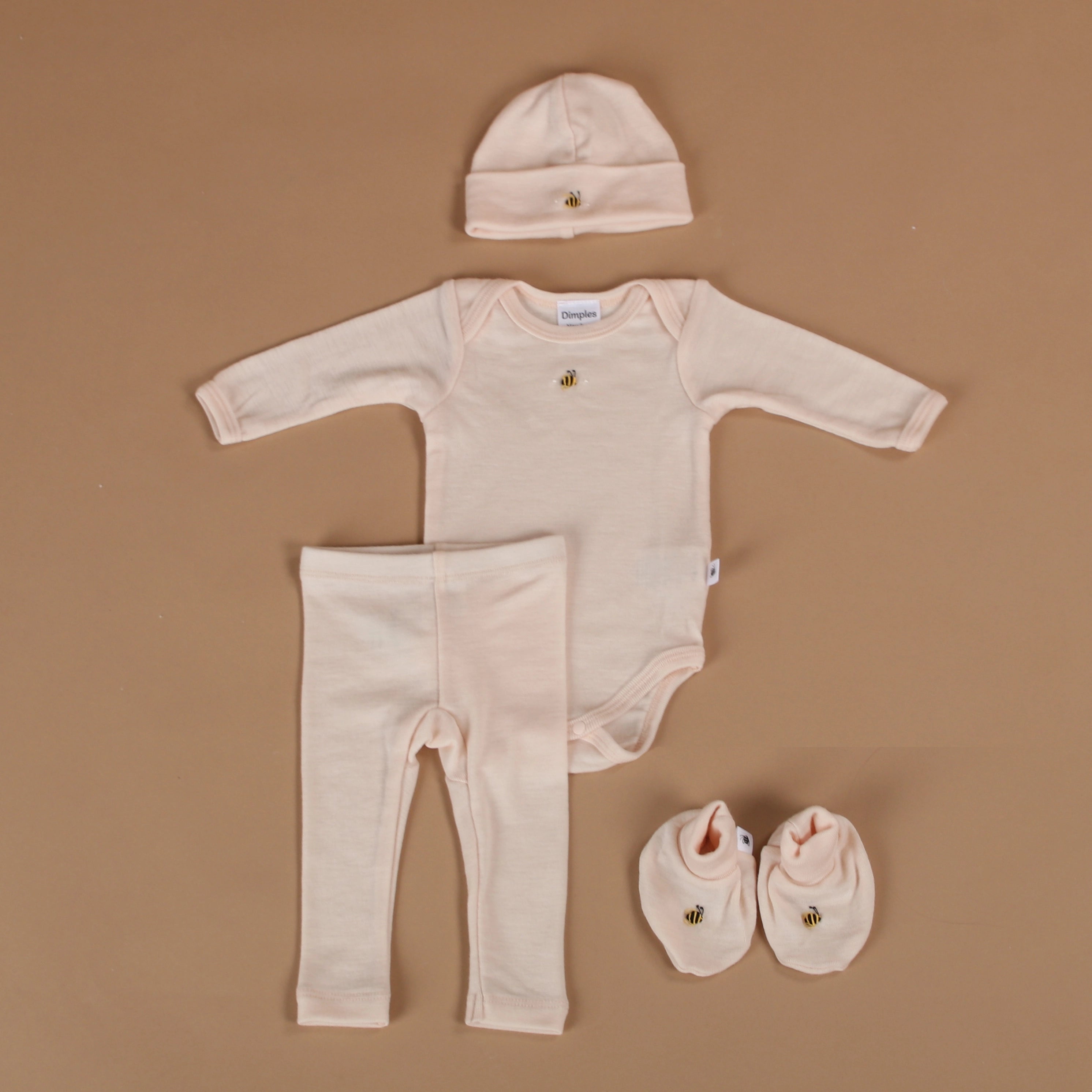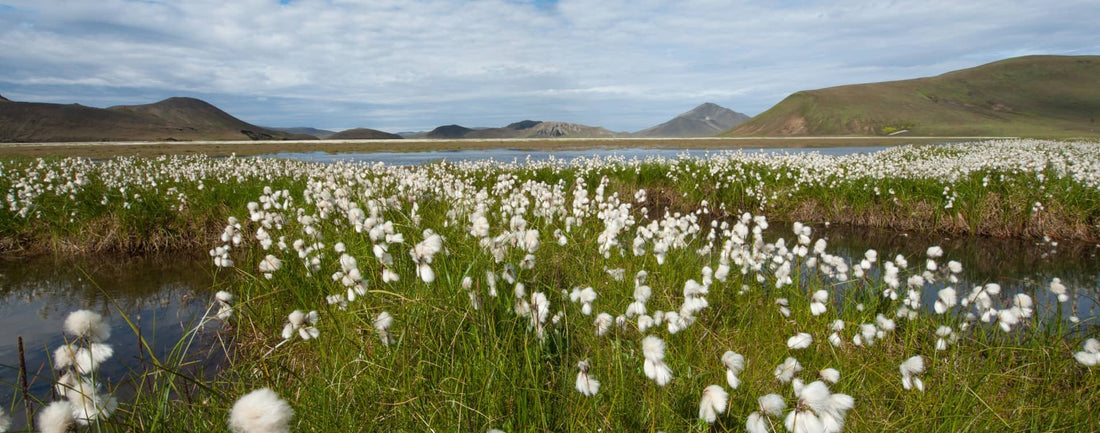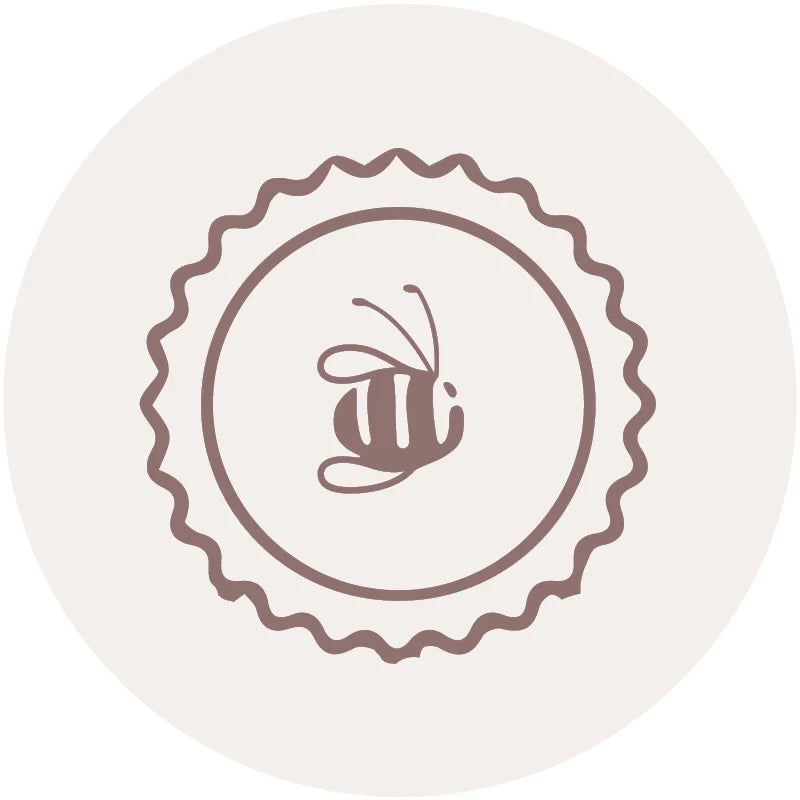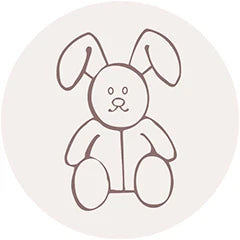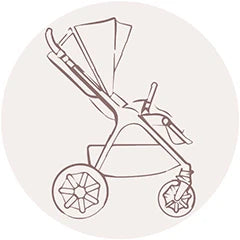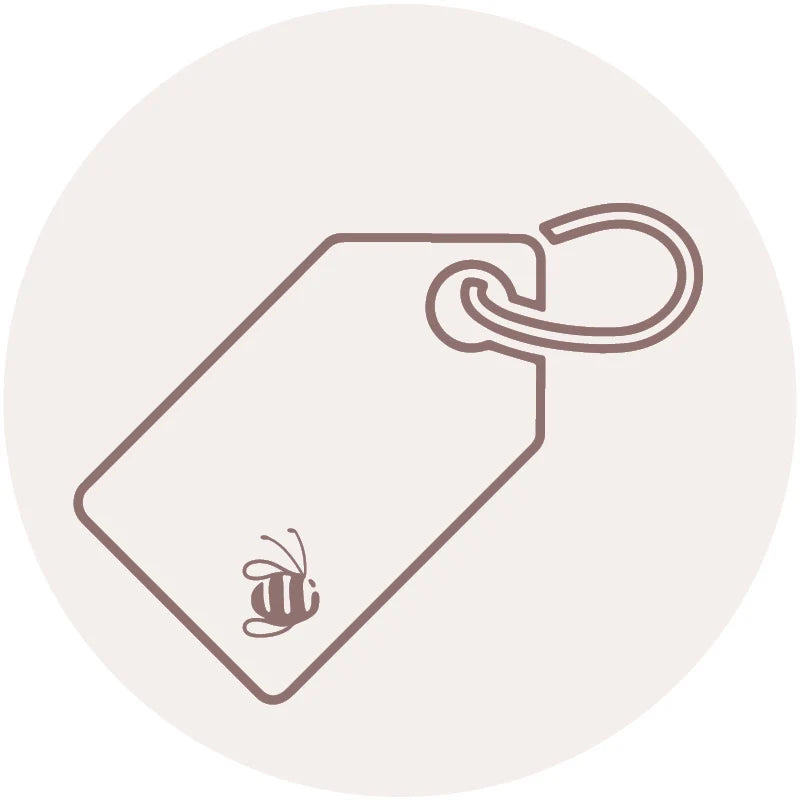Merino Bodysuit
Merino Bodysuit
SKU:SSN22E-18mth
Clothing Prem to 18 Months
| Size | Age Guide | Weight | Height |
|---|---|---|---|
| Premature | Premature or Small Newborn | Up to 4Kg | Up to 55cm |
| Newborn | 0-3 months | 4-6Kg | Up to 62cm |
| 3 Month | 3-6 months | 6-8Kg | Up to 68cm |
| 6 Month | 6-12 Month | 8-10Kg | Up to 76cm |
| 12 Month | 12-18 Month | 10-12Kg | Up to 84cm |
| 18 Month | 18-24 Month | 12-14Kg | Up to 92cm |
Clothing 2 to 6 Years
| Size | Age Guide | Height | Chest | Waist | Hip |
|---|---|---|---|---|---|
| 2 Year | 2-3 Years | Up to 100 cm | 56 | 51 | 58 |
| 3 Year | 3-4 Years | Up to 105 cm | 58 | 53 | 60 |
| 4 Year | 4-5 Years | Up to 110 cm | 60 | 55 | 62 |
| 5 Year | 5-6 Years | Up to 115 cm | 62 | 57 | 64 |
| 6 Year | 6-7 Years | Up to 120 cm | 64 | 59 | 66 |
Beanie Size Guide
| Size | Head Circumference | Age Guide |
|---|---|---|
| Premature | 31-35 cm | Premature or Small Newborn |
| Newborn | 35-40 cm | Newborn |
| Small | 40-43 cm | 3-6 Months |
| Medium | 43-47 cm | 6-18 Months |
| Large | 47-52 cm | 18-3 Years |
Sunhat Size Guide
| Size | Head Circumference | Age Guide |
|---|---|---|
| Newborn | 37-40 cm | Newborn |
| Small | 40-43 cm | 3-6 Months |
| Medium | 43-46 cm | 6-12 Months |
| Large | 46-49 cm | 12-24 Months |
| Xtra Large | 49-54 cm | 2-4 Years |
Sleep Pods Size Guide
| Size | Weight | Age Guide | Measurement(Back to Hem) |
|---|---|---|---|
| Newborn | 0-6 kgs | 0-3 Months | 60.5 cm |
| Small | 0-8 kgs | 3-6 Months | 66 cm |
Booties Size Guide
| Size | Age Guide |
|---|---|
| Newborn | 0-3 Months |
| Small | 3-6 Months |
| Medium | 6-12 Months |
| Large | 12-18 Months |
Pretty Brave Baby
| Foot Length (mm) | Insole Length (mm) | EU | UK | Age | INT |
|---|---|---|---|---|---|
| 95-104 | 110 | 16/17 | 2 | 0-6m | S |
| 104-114 | 118 | 18 | 3 | 6-12m | M |
| 114-123 | 127 | 19/20 | 4.5 | 12-18m | L |
| 123-137 | 142 | 21/22 | 5.5 | 16-22m | XL |
Pretty Brave 1st Walker
| Foot Length (mm) | Insole Length (mm) | EU | UK | Age |
|---|---|---|---|---|
| 114-120 | 125-128 | 19 | 3 | 1 yr |
| 120-126 | 132-135 | 20 | 3.5 | 1-2 yrs |
| 126-132 | 138.5-141.5 | 21 | 4.5 | 1-2 yrs |
| 132-138 | 145-148.5 | 22 | 5 | 2 yrs |
Crywolf Swim Nappy
| Size | Length (waist to crotch) | Crotch Width (side to side) |
|---|---|---|
| 0-1 yr | 1-2 yrs | |
| 37 | 38 | |
| 14.5 | 15.5 |
Crywolf Rash Suit
| Size | Length (back neck to crotch) | Chest (arm to arm) | Waist (side to side) | Sleeve (neck to cuff) | Neck Opening(diameter) |
|---|---|---|---|---|---|
| 6-12 Months | 1 yr | 2 yrs | 3 yrs | ||
| 40 | 42 | 44 | 46 | ||
| 25 | 26 | 27 | 28 | ||
| 24 | 25 | 26 | 27 | ||
| 30 | 31.5 | 33 | 34.5 | ||
| 13.25 | 13.25 | 13.8 | 14.3 |
Low stock
Couldn't load pickup availability
Overview
Overview
Wrap your little one in the natural softness of our Soft Snuggles 100% merino babywear collection. Crafted with love and care, it offers the perfect blend of warmth, comfort, breathability and timeless style.
Keep your baby cozy in all seasons with our Merino wool long sleeve bodysuit, offering warmth, breathability, and gentle comfort.
This is a gorgeous unisex colour with a slightly peachy pink undertone.
Fit & Care
Fit & Care
Delivery and Returns
Delivery and Returns
- Delivery: Free within NZ on orders over $100 (excluding bulky items) or $8 standard shipping
- Returns: Accepted within 14 days of receipt with proof of purchase
- Some items are excluded from returns including sale items, hardware, car seats, prams, monitors and personal items - please click here for the full list.
Share this product
Recently viewed products
Related Blogs
No matter the colour, all our clothes are green on the inside
Dimples has always been a proud New Zealand brand, with strong Kiwi values. Protecting the environment is one of them. Even as we’ve grown from a home business to a larger company, that commitment hasn’t changed. The clothing industry is notoriously hard on the environment – and on the people involved. It can cause incredible environmental and social damage worldwide: from cotton farms that suck up huge amounts of valuable water, to clothing factories using harsh chemicals and exploiting their workers; from the use of fossil fuels for shipping, to ‘fast fashion’ that ends up in landfills after a few wears. We work hard to minimise our impact on the environment by keeping our production in New Zealand, using local materials as much as possible, and avoiding the factory system altogether. It’s about protecting our world long term – and making adorable, high quality baby gear at the same time. Made here, sold here Dimples clothing is produced right here in New Zealand. This lets us avoid shipping product across the world using harmful fossil fuels – it’s one of the most important ways that we reduce our environmental impact. Making our clothes in New Zealand also means that we can control the quality of our product, and the working conditions of our sewers. We know that all our clothing is produced to an extremely high standard, by workers who are paid well and treated fairly. That’s incredibly valuable. Starting from scratch Where clothing is assembled isn’t the only factor when it comes to the environment. Sourcing the raw materials – merino wool and cotton , in our case – is also important. Our merino comes from a mix of New Zealand and Australian sheep, which means the raw materials don’t have to travel very far, and we can keep an eye on the quality. New Zealand’s climate isn’t suitable for large-scale cotton production, so we import only pure, organic-certified cotton to make sure the impact of cotton farming is minimal. Small scale production Dimples started out as a home-based business, and although we’ve grown, we haven’t changed all that much. We don’t have a huge factory producing our clothing – instead, our expert sewers work from their homes. It’s essentially a scaled-up version of the small home workshop where it all started. The classic Dimples bee and rose are still hand-stitched onto every garment. This system doesn’t just result in a better quality product, it also helps us avoid the environmental costs of factory production – we don’t use huge amounts of power to run machinery, or process our materials using harsh chemicals. Made to last The end result of our high-quality materials and high production values is hard-wearing, long-lasting clothing. Our customers find that our clothing lasts through wash after wash without fading, stretching or pilling. Many customers use our clothing for multiple children, then pass it on to friends or family. This is environmentally friendly in itself – the more your child or children can wear each garment, the less you’ll need to throw away. This reduces the need for production and reduces the amount of landfill. It’s all part of our ongoing commitment to our beautiful world. We’re not green because it’s trendy or expected, we’re green because we care – and we always will. Take a look at our NZ made clothing now
Learn moreKeeping Winter Bugs Away from your Baby
Keeping your baby well and cosy this winter Winter can be a challenging time when you have a little one, especially if they’re brand new. 🐣 Alongside keeping baby warm and dry, you’re also up against colds, flu, and other winter bugs that seem to be everywhere. Because babies’ immune systems are still developing, they’re more vulnerable to infections. Their tiny nasal passages and lungs also mean illnesses like colds and flu can affect them more than adults. But don’t worry—there are plenty of ways to reduce their risk and help them recover quickly if they do catch something. Stay warm, stay comfy While “catching a chill” won’t cause a cold or flu, keeping your baby warm and dry helps their body focus on fighting off germs instead of battling the cold. Dress your baby in one extra layer than you’re wearing, and choose clothes that are easy to add or remove as they warm up or cool down. Keep your home temperature steady around 18 - 20°C for cosy comfort. Merino wool is a winter hero for babywear and bedding. Its natural temperature regulating properties keep babies warm without overheating, making it ideal for layering under pyjamas and sleepwear. Fuel their immune system Good nutrition is vital to support your baby’s developing immune system. Once they’ve started solids, offer a colourful variety of fruits and vegetables rich in vitamins and antioxidants. Frozen produce can be just as nutritious as fresh, especially during winter when fresh foods may have been stored for long periods. Avoid refined sugars and processed foods, which can impair immunity. When possible, prepare baby’s food from scratch to keep nutrient levels high. While supplements aren’t usually necessary for babies, some parents choose to use vitamin drops - just make sure these are used as a boost to a healthy diet and given in the correct amounts. Keeping germs at bay Reducing exposure to germs is one of the best ways to keep your baby healthy during winter. Handwashing is the frontline defence. Wash your hands thoroughly and frequently, especially after being in public places, changing nappies, or before feeding your baby. Teach older siblings to wash their hands immediately after coming home, and encourage good hygiene habits like coughing or sneezing into their elbows instead of their hands. If your baby is old enough to explore, regularly clean their hands as well, since babies often put toys and fingers in their mouths. When out and about, keeping your baby’s pram covered can help shield them from strangers’ coughs and sneezes or accidental touching. Regularly clean toys and surfaces baby frequently touches at home to limit germs. Avoid close contact with anyone who is unwell, and try to limit your baby’s time in crowded places during peak cold and flu season. If you’re still breastfeeding, it’s especially important to keep germs away - breastmilk passes vital antibodies that help protect your baby from many illnesses. This natural immunity boost makes hygiene and reducing exposure even more crucial. Hydration is key Breastfeeding also helps keep your baby hydrated and supported through winter. Regardless of feeding method, ensure your baby drinks enough breastmilk, formula, or water (if old enough) to prevent dry nasal passages and reduce infection risk, especially if you’re using heaters or air conditioning, which can dry the air. When sniffles strike Even with your best efforts, babies can still catch colds. If your baby starts showing signs of a runny nose or congestion, gentle relief can make a big difference. Nasal decongesters designed specifically for infants safely clear blocked noses, making it easier for them to breathe and sleep. Using a few drops of saline beforehand can help loosen mucus for easier removal. A chest rub can be especially helpful for sleep. Raising the head of their cot slightly and running a humidifier in their room can soothe irritated airways. While some parents like using eucalyptus rubs or essential oils, it’s best to apply these to bedding or sleepwear rather than directly on baby’s skin to avoid irritation. Having these supplies ready before cold season hits means you’re prepared to help your little one feel comfortable and recover quickly. Ready for a cosy, healthy winter? Our collection of beautiful merino babywear and bedding is designed to keep your baby naturally warm and comfortable all winter long. With merino’s breathable and temperature-regulating properties, you can feel confident your baby is snug without overheating. Shop the range here.
Learn moreTemperature Control and Sleep
Hot and cold – helping your baby sleep comfortably We all know how much temperature affects sleep. Too hot and you’re tossing the covers off, too cold and you’re hunting for another blanket. For babies, who are still learning to regulate both their body temperature and sleep patterns, the impact can be even greater. If they’re too warm or chilly, they might struggle to drift off – or wake more often through the night. The good news is you can help keep your baby at a comfortable temperature with the right mix of clothing, bedding, and room adjustments, making it easier for them to settle and stay asleep. Why temperature matters Our bodies can regulate internal temperature, but during deep sleep, that process slows down. This means a room that’s too hot or too cold can cause night wakings. For babies, the ideal room temperature is around 18°C – it might sound cool, but a lower core temperature is linked to better sleep, while warmer conditions often mean more restlessness. A warm bath before bed can also help. While it seems backwards, the water on your baby’s skin will cool them down after the bath, helping them start the night at a comfortable temperature. Ways to manage temperature Heaters, fans, air conditioning, and the right bedding can all help keep things steady through the night. If you have a thermostat, set it to 18°C and let it do the work. If not, you can buy a plug-in thermostat for your heater to help maintain consistency. Merino – your sleep-time secret When it comes to baby sleepwear, merino wool is a year-round winner. Naturally breathable and temperature-regulating, it helps keep your baby comfortable in both warm and cool conditions – and research shows it can even help them sleep longer. In winter, use merino layers under a merino sleeping bag or sleepwalker. In summer, lighter cotton or merino sleepwear with a lighter weight sleeping bag is usually enough, depending on the temperature where you are. Sleeping bags are especially useful as they can’t be kicked off like blankets, keeping your baby covered all night. Choose one with a weight (or TOG rating) that suits the season. Spotting temperature troubles Signs your baby might be too hot: Waking often Sweaty neck or back Damp hair Rapid, shallow breathing If you notice these, remove a layer of clothing, switch to a lighter sleeping bag, improve airflow, or lower the room temperature. If your baby seems uncomfortably hot, check for fever and use a cool, damp cloth on their forehead and back. Signs your baby might be too cold: Moving around the cot more than usual Rolling onto their stomach during sleep Frequent short naps Early morning waking (around 5am, when body temperature naturally dips) If this happens, add a layer, switch to a warmer sleeping bag, or adjust the room temperature. Getting the temperature right won’t solve every sleep challenge, but it’s one piece of the puzzle that can make nights smoother for everyone. Click here to shop our full range of merino.
Learn more

